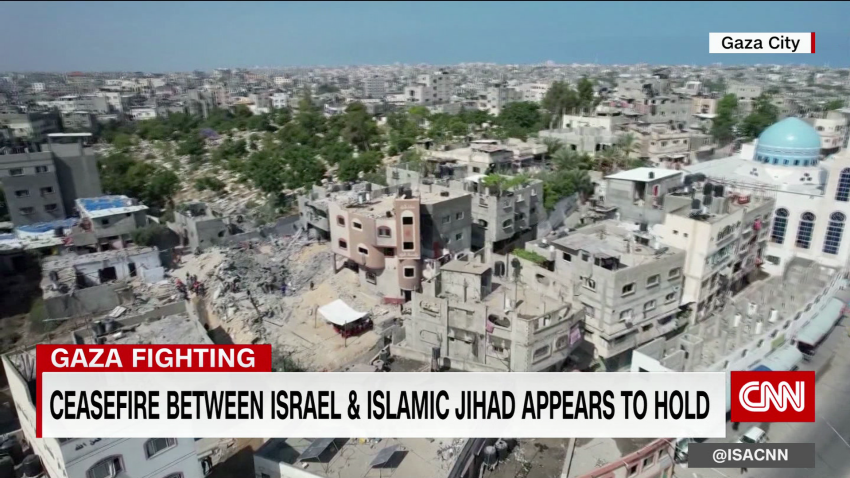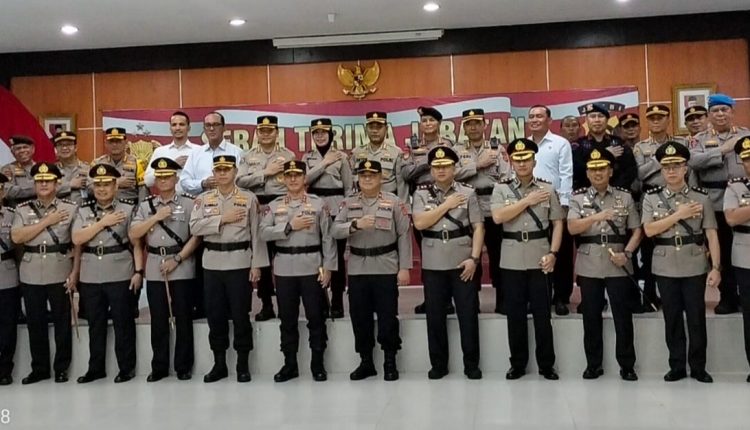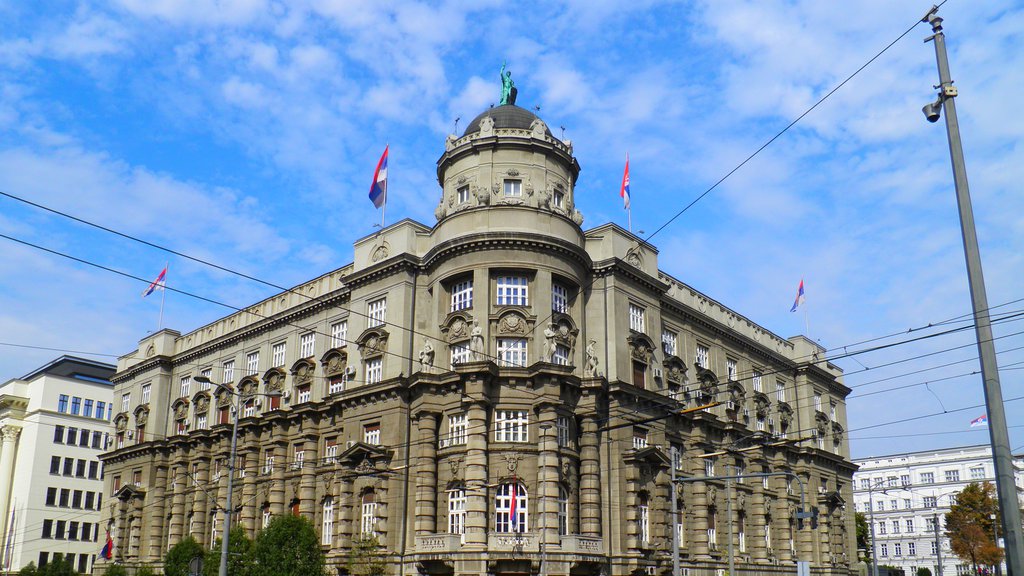Gaza Conflict: US Envoy's Ceasefire Initiative

Table of Contents
The US Envoy's Proposed Ceasefire Plan
The US envoy's ceasefire plan aims to address the immediate humanitarian crisis in Gaza while laying the groundwork for a longer-term peace process. Its success hinges on the willingness of all parties to engage in good-faith negotiations and commit to a lasting resolution.
Key Elements of the Plan
The plan reportedly includes several key elements crucial for achieving a ceasefire and fostering long-term stability:
- Humanitarian Aid Delivery: Unrestricted access for humanitarian aid organizations to deliver essential supplies, including food, water, medical supplies, and fuel, to alleviate the suffering of the Gazan population. This is critical to addressing the Gaza humanitarian crisis and facilitating reconstruction efforts.
- Prisoner Exchange: A potential exchange of prisoners held by Hamas and Israel, a highly sensitive issue requiring delicate negotiations and mutual concessions. This element is vital to building confidence and trust between the warring factions.
- Security Guarantees: Implementation of robust security arrangements to prevent future escalations and ensure the safety of both Israeli and Palestinian populations. This aspect necessitates a comprehensive understanding of security concerns on both sides. Effective security arrangements are fundamental for sustainable peace.
- Long-term Solutions: Addressing the underlying political issues fueling the conflict through a comprehensive peace process, including negotiations on borders, settlements, and the status of Jerusalem. This element requires long-term commitment and international support for the peace process. Addressing the root causes is crucial for Gaza reconstruction and a sustainable solution.
Challenges and Obstacles
Despite the good intentions, the plan faces significant challenges and obstacles:
- Mistrust Between Parties: Deep-seated mistrust and a history of broken agreements pose significant hurdles to achieving a lasting ceasefire. Overcoming this requires building confidence-building measures and facilitating open communication channels.
- Internal Divisions Within Hamas: Internal divisions within Hamas could hinder its ability to fully commit to the ceasefire agreement. This requires careful consideration of the internal dynamics within Hamas' leadership.
- Israeli Security Concerns: Israel's legitimate security concerns, particularly regarding rocket attacks from Gaza, must be addressed to ensure its acceptance of the plan. Addressing Israeli security concerns is crucial for securing their buy-in to any long-term solution.
- International Pressure: Maintaining international pressure on all parties to adhere to the agreement is essential for its success. Consistent international engagement is critical for preventing backsliding and ensuring accountability.
International Response and Involvement
The international community's response to the US envoy's initiative has been mixed, with varying levels of support and opposition.
Support from Key Players
Several key players have voiced support for the initiative:
- UN Involvement: The United Nations has expressed its readiness to assist in facilitating the peace process and delivering humanitarian aid. The UN's involvement is crucial for providing impartial oversight and humanitarian support.
- EU Position: The European Union has pledged its support for the initiative and has offered financial and logistical assistance for humanitarian aid and reconstruction efforts in Gaza. The EU's financial and logistical support will be critical for long-term reconstruction in Gaza.
- Arab League Response: The Arab League has expressed cautious optimism and called upon all parties to engage constructively in the peace negotiations. Regional support for the initiative is paramount to its success.
Opposition and Criticisms
However, the initiative has also faced criticisms:
- Criticism of the Initiative: Some critics argue that the plan does not adequately address the root causes of the conflict and may offer insufficient concessions to either side.
- Concerns About Concessions: Concerns have been raised about potential concessions that could be perceived as rewarding violence or undermining Israeli security. These concerns highlight the need for a balanced approach in negotiations.
- Alternative Solutions: Alternative solutions have been proposed, arguing for a more comprehensive approach that addresses Palestinian grievances more directly. Exploring alternative solutions is essential for ensuring the initiative's viability and comprehensive nature.
Humanitarian Situation in Gaza and its Impact on the Ceasefire Efforts
The dire humanitarian situation in Gaza significantly impacts the ceasefire efforts. Addressing these urgent needs is crucial for fostering stability and supporting a lasting peace.
Current Humanitarian Needs
The people of Gaza face a severe humanitarian crisis:
- Gaza Humanitarian Crisis: The ongoing conflict has exacerbated pre-existing challenges, leading to widespread food insecurity, water shortages, power outages, and a lack of essential medical supplies.
- Displacement: Thousands of civilians have been displaced from their homes, increasing pressure on already strained resources and infrastructure.
- Medical Supplies: A critical shortage of medical supplies and qualified medical personnel is hindering the provision of adequate healthcare.
The Role of Humanitarian Aid in Achieving a Sustainable Ceasefire
Delivering humanitarian aid is not merely a humanitarian imperative; it is a crucial element in fostering stability and supporting a sustainable ceasefire:
- Humanitarian Aid Delivery: Providing essential aid helps alleviate suffering, reduces tensions, and creates a more conducive environment for negotiations.
- Reconstruction Efforts: Investing in reconstruction efforts will help rebuild shattered infrastructure, communities, and livelihoods, promoting long-term stability and development.
- Long-term Solutions: Addressing the underlying causes of the humanitarian crisis through sustainable development initiatives is essential for preventing future escalations.
Conclusion
The US envoy's ceasefire initiative presents a significant opportunity to bring an end to the devastating Gaza conflict. While the plan offers a potential pathway towards de-escalation and lasting peace, it faces significant challenges related to mistrust, internal divisions, security concerns, and the dire humanitarian situation. The success of the initiative hinges on the willingness of all parties to engage in good-faith negotiations, address the root causes of the conflict, and prioritize the needs of the civilian population. International support, including sustained humanitarian aid and diplomatic pressure, will be critical in ensuring the implementation and success of the peace initiative.
Call to Action: Stay informed about developments in the Gaza conflict and the US envoy's peace initiative. Advocate for a peaceful resolution and support humanitarian efforts aimed at alleviating the suffering of the people of Gaza. Demand a peaceful resolution to the Gaza conflict and support for a lasting ceasefire. You can learn more and support efforts through organizations like [Link to a relevant organization].

Featured Posts
-
 Info Cuaca Bali Besok Waspada Hujan Deras Di Denpasar
May 28, 2025
Info Cuaca Bali Besok Waspada Hujan Deras Di Denpasar
May 28, 2025 -
 French Open 2025 See The Complete Draw For Raducanu Draper And Djokovic
May 28, 2025
French Open 2025 See The Complete Draw For Raducanu Draper And Djokovic
May 28, 2025 -
 Irjen Daniel Pimpin Sertijab 7 Perwira Menengah Polda Bali Detail Dan Pesan Khususnya
May 28, 2025
Irjen Daniel Pimpin Sertijab 7 Perwira Menengah Polda Bali Detail Dan Pesan Khususnya
May 28, 2025 -
 Cubs Vs Diamondbacks Prediction Will The Cubs Win
May 28, 2025
Cubs Vs Diamondbacks Prediction Will The Cubs Win
May 28, 2025 -
 Assessing The Blue Jays Trade Vlad Jr S Performance And Future
May 28, 2025
Assessing The Blue Jays Trade Vlad Jr S Performance And Future
May 28, 2025
Latest Posts
-
 How Covid 19 Vaccines May Mitigate Long Covid
May 29, 2025
How Covid 19 Vaccines May Mitigate Long Covid
May 29, 2025 -
 Krasnici Dpk Ultimatum Kurtiju Vlada Ili Preuzimamo
May 29, 2025
Krasnici Dpk Ultimatum Kurtiju Vlada Ili Preuzimamo
May 29, 2025 -
 Exploring The Link Between Covid 19 Vaccines And Long Covid Risk
May 29, 2025
Exploring The Link Between Covid 19 Vaccines And Long Covid Risk
May 29, 2025 -
 Rok Od 48 Sati Krasnici Dpk Spreman Za Formiranje Vlade
May 29, 2025
Rok Od 48 Sati Krasnici Dpk Spreman Za Formiranje Vlade
May 29, 2025 -
 Covid 19 Vaccines A Potential Shield Against Long Covid
May 29, 2025
Covid 19 Vaccines A Potential Shield Against Long Covid
May 29, 2025
